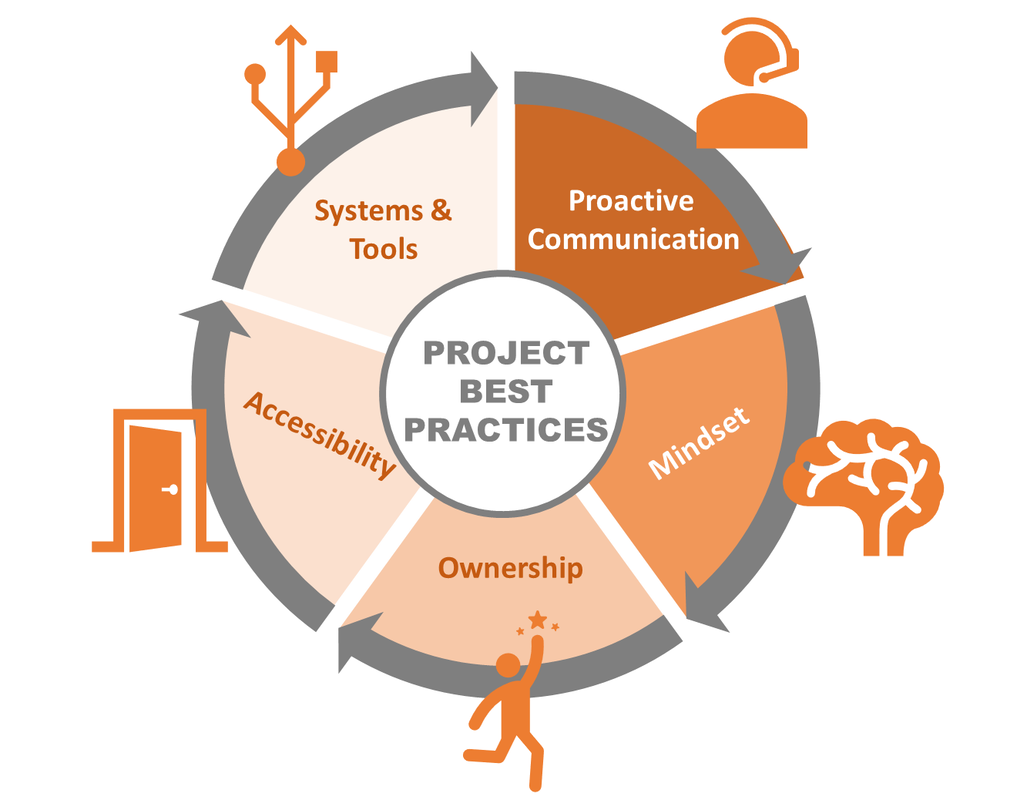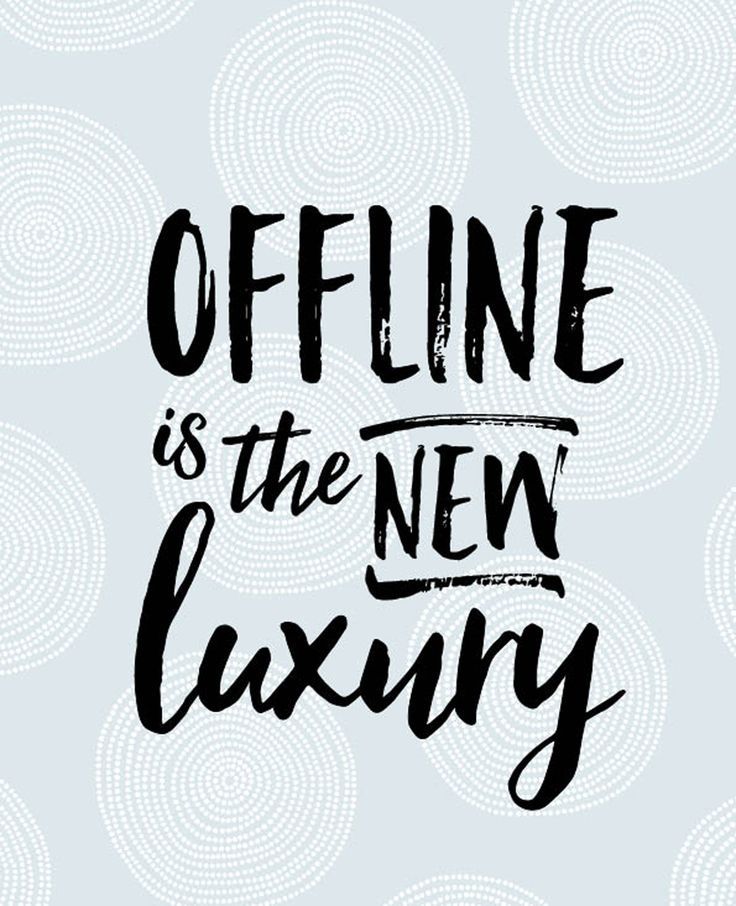|
[This article is also featured on episode 72 of the Business Wingmen Podcast Show] Successful performance is everything! Our ability to execute at work is something we as professionals need to strive towards every day, yet many of our colleagues seem to have forgotten this time-tested reality of business. As Rory Vaden, bestselling business author and leadership speaker, accurately shares, “success is not owned, it is rented - and that rent is due everyday.” Vaden hits on a key piece which would serve all of us well to keep in mind as we come to work - our ability to successfully perform our job is what keeps us gainfully employed. I’ll take it a step further, what got us the job was our credentials, the things we’ve done in the past. What keeps us in the job thereafter is 100% our ability to get things done – the things that matter to the company and our respective performance. The same is certainly true in the consulting world, frankly I would argue it’s even more focused on performance and execution than a normal 8-5 full-time job is. The world of consulting can be summed up in 3 words: execute, execute, execute! Anything less and you’ve missed the mark. Consultants, like many of our fully employed brethren, has a tendency to forget the reason they are there, the reason they have a job – it’s to fix, solve and solution other peoples’ problems. Our inability to do this will inevitably lead to a consultant, or consulting firm, finding themselves unemployed or not getting asked back to continue supporting their customers. It’s for these reasons we need to employ the below five ‘best practices’ in our daily work. Your ability to do so will do two things – help keep you focused on what matters (successful execution of your task or job) while separating yourself from the competition and or your colleagues. Best Practice #1 – Proactive Communication If you’ve ever had some one say to you, especially someone in management, “can you give me an update on where you’re at with X”, you’ve just failed the first lesson of communication. Professionals who operate at a high level understand the importance of fluid and consistent communication. They know it’s important to communicate proactively, ahead of time. They don’t wait until the last minute to spring an urgent matter on the team or their boss, they don’t procrastinate, and they certainly don’t wait to inform those around them they are going to miss a deadline the day the deadline is due. Proactive communication is all about respecting the process and those around you. Best Practice #2 – Positive Mindset The beautiful thing about the way our minds work is we have an incredible amount of power over most of what happens in our heads. In particular, our outlook on things, our attitude, is 100% within our control. If we show up to work with a bad attitude, closed to others ideas, not welcoming feedback and or unwilling to collaborate with others we quickly will build a reputation as a person on the fringes. There’s no quicker way to alienate oneself from a team or your boss than by having a poor attitude. Yes, we all have our bad days – it happens even to the best of us. What’s important is to have your moment and then move on. Focus on what you can control and be open to ideas, different approaches and perspectives. An open and positive mindset is contagious causing your colleagues to feel invigorated working with those of us who can come to the table and leave the sourness at the door. Positive thinking also boosts our health by reducing stress! Best Practice #3 – Ownership We don’t need to be in management or the owner of a company to operate in a capacity of owning our work. Those of us who employ ‘ownership’ in our work don’t make excuses for shortcomings, we don’t worry about excuses because we’re busy finding solutions. When we own our work we don’t wait to be told what to do, we seek work proactively and or ways to improve things around us. People who operate with an ownership mentality have a tendency of being able to make decisions quicker while experiencing success more often. If you’ve ever said “that isn’t a part of my job description” you just failed the ownership best practice. People who own their work get promoted more, are typically paid higher wages and increasingly get called back to help with projects. They take responsibility for how they show up and encourage others around them to do the same. Of all the best practices listed in this article it is my humble opinion the practice of owning ones work and being accountable for it carries with it the biggest positive impact on our jobs. Best Practice #4 – Accessibility In the dawn of everyone working from home these days, or remotely, being able to get a hold of someone during normal working hours is critical. Simply put – if your boss has to track you down every time they need to reach you it probably isn’t going to end well for you in that job. Same is true if your company uses communication tools like Slack or Microsoft Teams. These tools are used to improve communication amongst the team, if you aren’t logged into the tool and or are unresponsive, you’re setting yourself up for a quick career death in your job. This doesn’t mean you need to be chained to your desk or phone eagerly awaiting the next hopeful call by a colleague or boss. What it does mean is that you need to be mindful of the various ways in which your company communicates and be attentive to those processes. If people feel like its easy to get in touch with you and or you respond quickly, they will invariably feel you are on top of things and are a reliable person to work with. For example, our company practices the ‘1/24 rule’ during standard business hours. We expect our teammates to acknowledge a communication with a response within an hour and provide an answer, or what to expect next within 24 hours. We aren’t perfect at this down to the minute (as that would be unrealistic) but I’ll be the first to say this practice makes our teammates highly proficient and therefore their jobs easier. Best Practice #5 – Systems & Tools Whether you’re a consultant, an employee or just new to your job, in today’s world there’s no excuse for not learning a company’s procedures, systems and tools. Those of us who choose not to work within these parameters typically find ourselves making careless mistakes, coming up short on our projects and irritating the heck out of our colleagues and management. Why is this? Well, when we don’t use a tool right, or don’t follow a certain SOP accurately it inevitably makes more work for someone else down the road. Trust me when I say every one hates having to fix other people’s inaccuracies, especially when it’s documentation related. If you’re new to a company do everything you can to quickly spool up by learning the tools, systems, workflows and documentation processes. The quicker you learn it the better your work product and output will be. People may just like working with you better as a result. Conclusion While there are many things which lead to someone being successful in their line of work, I firmly believe these five best practices are things all professionals can do, regardless of their experience, education level, etc. We have a choice to make every day when we show up to work – be the best at what we do or simply be average. As the job market continues to tighten up those of us who are average will find themselves unemployed far more frequently than those of us who choose to operate at a high frequency. It’s a choice – do you have what it takes?
0 Comments
Author: Trisha Aure
It seems nowadays there are no safe places for thoughts, comments or posts. There will always be someone that will have a negative response no matter what the content is. I was reading a post on LinkedIn about a company that hired their first woman board member. This is something that should definitely be talked about and celebrated. But then I started reading the comments, and it was talking about everything this woman was not: “That’s great, but it would be better if she wasn’t Caucasian.” “How is she going to stand up to her male counterparts?” Why can’t we see the actual message here instead of seeing everything that it is not? What would life be if we celebrated what we should instead of tearing down things that don’t align with our personal goals? We all have different goals, different paths and different stories. And this is exactly as it should be. We should be uplifting and supportive of one another, even when we disagree. Having a healthy mindset is not the easiest, and I have come to find out, this is an everyday activity. I’m sure there are many speculations on why our minds are triggered to see the bad rather than the good. The news, social media, celebrities, and pure gossip are just to name a few. I started thinking about this during a conversation I had with a friend of mine about my road rage. I realized that I get frustrated when someone would cut me off or drive too slow because I would take it personally. As though the driver saw me and said to himself “I’m going to cut that girl off…. haha.” My friend put a bit of perspective out there for me and brought up that this person could be driving their hurt kid to the hospital or frantic because they received some heart wrenching news. This struck home because it made me sound egotistical as though the world revolves around me; why did I think that? What does this negativity do to us? It creates stress and an unhealthy lifestyle. “Emotional stress can weaken the immune system and cause high blood pressure, fatigue, depression, anxiety and even heart disease.” In fact, it is estimated +75% of the physician office visits which occur in the USA annually are for stress related ailments. It’s also the leading cause of death. It’s a wonder why we react the way we do to certain actions is the first step. We need to change our daily habits in order to begin a healthy lifestyle. This can include:
Key Take Away Slow down and live life. Stop holding yourself back from happiness, success, family or anything else that you are striving to. Stop worrying about things that are out of your control. If it is out of your control, you can’t do anything about it, so why worry about it? Why get upset about it? Why lose sleep over it? By taking stress out of your life, things won’t look as dull. Our minds are so powerful, that if we train it to see things for what they really are it would be full of more rainbows than icy storms. Action Item You don’t know everyone’s story and why people act the way they do. We only have control over our own actions. Instead of judging someone, talk to them, lend them a hand, or let them pass. Humor is a big stress reliever for me. You can’t stress when you are laughing. If something works for you, share it. Sharing is caring people. It’s common to think “I don’t have the job title which warrants me to be a leader”. Early in my career I struggled with this exact mindset challenge. I thought “if I don’t have a title which gives me the power to lead, how and why would anyone listen to me in the first place”. This mindset is especially true and often found with people who are in individual contributor roles. We use the excuse “I don’t have the title to lead” as our justification for not stepping up to taking action, even in times when we know it’s what is needed. I was well into the third year of my career when a senior partner in our office pulled me aside and gave me some much needed advice. Let’s put it this way, it was a thump on the head in a caring way. What he said was simple, yet incredibly eye opening: “Your job title doesn’t give you permission to lead or make you a good leader people will respect, it’s more about your ability to help others achieve their goals while having their backs. We can lead from any role in the company, there’s no need to wait to be told you can lead or given a title which means people have to listen to you. So, why are you waiting?” Urghhh, he had a point, even though in the moment my ego still wasn’t allowing me to hear it. After a couple days of digesting this feedback I had to admit I felt pretty dumb about the way I was thinking about leadership and my role within the company. I had to get over my ego and the thought that I needed a title to justify my ability to lead when the reality was, and still is, good leaders are those who take action and help others. They listen, guide and influence because they’re passionate about helping others, first. This in turns builds trust, respect and comradery – these are the building blocks and keys to being a good leader. Titles aside, those who can build trust with their colleagues gain respect which leads to healthier interactions. These things are possible and certainly most achievable even if your job title doesn’t reflect management. Whether you have the leadership job title or not what’s important are your actions and the intent behind why you do them. Follow these steps to help guide you down the path of leading successfully: 1.Let Go of Fear – the basis for our lack of leadership is fear; fear we won’t do it right, fear people will reject us, fear we’ll look stupid in the process, etc.; once we acknowledge fear is what holds us back from doing what we know is right or what we want we then can go about changing our perspective to improve the situation 2.Build the Foundation - for what successful leadership is by reading “The Go-Giver” by Bob Burg and John David Mann 3.Reflect - on who you are as a person, professional, peer and employee of your company a.What skill sets or areas of influence do you possess which you could use to positive impact, support or mentor others within the organization 4.Channel Your Vulnerability – good leaders understand this truth, to be trusted as a leader we must be vulnerable. This doesn’t mean crying because the creamer when bad and ruined your coffee, it means being honest and open with your intent, your struggles and perspectives to help people see who you really are. No leader is perfect. 5.Be a Coach – listen and guide as this is the pathway to good leadership; like the old proverb says “give a man a fish and they will eat for a day, teach a man to fish and you feed him for a lifetime” 6.Act - start small and pick one person or department you believe you can positively impact; talk with that person or department to share with them your ideas and why you believe this would be of value to them, get their buy in before moving forward 7.Inform Management - Share with your manager the idea you have to help support and mentor others within the company, .Be prepared to provide specifics on how this could positively impact the company 8.Consistency - implement a schedule you and your new mentee can follow which keeps you on track helping them achieve their goals, key thing here is to keep it natural don’t overdue it with processes and procedures Remember life before the internet? What about the smartphone? If you grew up pre 2000’s you know exactly what life was like before technology forever changed the way we interact with others, work, play and pastime. I remember the days of doing research papers in school and having to use the card catalog system in the library to search out information. It was agonizing and tedious, but hey, it’s all we knew or had for that matter. Technology has certainly enabled us to be much more efficient in many aspects of our lives. As we’ve grown in our use of technology so have the side effects that come from our technology dependency in the office and at home, especially with our smartphones.
The side effects I speak of, impatience and declining interpersonal skills, directly impact an incredibly important part of our being - our peace of mind. People have become increasingly more impatient than they’ve ever been. I know because I’m one of them. The golden rule in business back in the day was to return a phone call within 24 hours. Today, if we don’t get a response in 30 minutes we think the person on the other end is avoiding us or must not have received our call. We then resort to a whole list of communication outreach shenanigans, frantically trying to get a response by texting, Facebooking, IG-ing, LinkedIn Messenger, emailing from three different addresses and blasting off SnapChats. Sound familiar? The result of our increased impatience is a heightened level of stress. When we’re stressed the last thing on our minds is peacefulness which leads to bad decision making, mistakes and a decline in our health. Stress is the real McCoy here as over 75% of all doctor's office visits are for stress-related ailments. Our interpersonal skills are also experiencing side effects of smartphones and their associates technologies. At an alarming rate we’re focused on the technology in front of us rather than the people and experiences we’re surrounded by. Ever been to a restaurant and see a couple facing one another, not saying a word, both eating ferociously while they text and bounce from one social media app to the next? An entire meal goes by with little more said than ‘pass the guac’. Parents at playgrounds are absorbed into their phones while their kids play about unaware that mom and dad are more interested in the scrolling unyielding stream of meme’s and picture perfect vacation images of strangers rather than their own kids development and experiences. Our conversations and relationships suffer because we are fixated on what is happening in the world thousands of miles away rather than what’s right in front of us. Folks, it’s not a pretty picture. Smartphones, while useful in many ways, have had a dramatic change on the way we operate. While I know the above to be true, I’m also an addict. Like many of you reading this I too am addicted to the never ending stream of nonsense on my phone. Yesterday a good friend of mine encouraged me to do a little test, one that I’ve jumped into wholeheartedly. As I write this article I’m 24 hours into a social media hiatus. I’m going for a month off, then from there I’ll evaluate how my life is for better (my hunch is this will be the case) or for worse without social media. I’ve deleted all social media apps from my smartphone and am excited to experience an existence without those distractions. I encourage you to join me in a month of social media/ smartphone hiatus. Use these five techniques to unplug so you can start enjoying life in the moment:
Twice in my career I've been in a slump.
Statistically I'm not sure where that puts me in comparison to others having to do with 'career slumps' however I can openly and honestly admit those two experiences were incredibly challenging and equally as eye opening in my personal and professional development. What is a career slump? It can be a lot of things. A career slump can be a period marked with stagnation, little to no growth, periods of failure, challenges with our mindset and passion to succeed. Career slumps are all of these things and perhaps none of them at the same time, it just depends on your situation. A career slump could include mediocrity, boredom for extended periods. Lack luster attitudes and or a general malaise where we 'mail it in' on the daily. These are characteristics of a career slump. What I've learned from my two career slump experiences was it was near impossible to get out of it until I understood what got me there in the first place. I'm nervous talking about this. Being vulnerable on a stage like social media isn't necessarily an enjoyable walk in the park yet I've learned that many others share my same struggles so I choose to offer my experiences in the hope that it helps others. Sharing also helps me understand myself better and become more confident with who I am, what I'm capable of and what my 'why' is for doing what I do. There, right there. That's the answer! Getting out of a career slump isn't some magical experience or event that gets you back on track, its sharing and talking about what you're experiencing, how you're feeling emotionally and being aware of how that's impacting you and your career. Whether we want to admit it or not all of us at one point or another will experience a career slump. No one is perfect and times of strife in this life, more accurately our careers, are inevitable. The key is to dealing with a career slump is acknowledging it, accepting that it’s real then acting to change it. Similar to the psychiatric process called the ‘five stages of grief’ how we handle dealing with a career slump is a process of admittance, understanding and then action. It's a lot of soul seeking and working through your feelings to try and understand your mindset and what brought you to your present place. Here's what has worked for me: 1. ADMIT: Recognize and admit things aren't great. Say it out loud. 2. PRESENT STATE: Ask yourself how you feel in this moment. Write it down. 3. EVENTS: Trace back the last 6 months to a year and unwind your experiences, successes, struggles to understand the chain of events which brought you to your career slump 4. DIGEST: Sit on this information for a couple days. How does it make you feel? Do you now know why you're in a slump? 5. SHARE: Go find two people to talk with. Share with them your situation and present feelings on the matter. (I know...this is a lot of talk about feelings and emotions. Sounds awful, right. The quicker you can get beyond that the quicker you'll find yourself on the road to confident successful empowered you) 6. KEEP GOING: Keep sharing your experience with people. The more the better. You'll begin to notice the more you talk about it the better you feel and more accepting you are of the situation. 7. TRANSITION: Now that you know what's going on start out every day with 20 minutes of mindset activities to get you on the road to a positive you (workout, yoga, meditate, do your favorite activity, listen to music, sit in silence, etc.) It’s all about cultivating a positive mindset which drives who you are and your actions for the day in front of you. 8. ACT: commit to yourself that the experiences you had leading up to your career slump don’t define who you are. In fact, they make you better! Now is when we need to make some changes to our career. Implement a new office schedule, get rid of work if you’re overloaded, take on a new project to get yourself out of your comfort zone. Maybe you need to find a new job! Whatever it is, the new you, the new focus must be different than what you were doing the past month. If we change nothing about our actions and mindset we’ll continue to be who we were during the slump. This eight step process doesn’t happen immediately but you'll begin to notice a change in your overall outlook and mindset after a couple weeks of this. Keep it up, don’t falter. As positivity and empowerment come back into your life so too will your energy to kick ass and take names in your career. In honor of Fathers’ Day yesterday I’m sharing a personal story which I’m incredibly proud of, as well as continuously inspired by.
Often I hear people say that by your late 40’s to early 50’s a professional has hit their zenith, their peak, pinnacle, apex, summit - if you will, in their career. Late 40’s? How can that be? At that age you’re only half way to retirement. What’s to become of the next 20 years? I like to think that statistics like ‘hitting your peak in your late 40s’ is nothing other than just a data point. We only make it relevant if we live up to it. Imagine this - at the age of 51, could you completely reinventing yourself professionally? Not because you have to but because you want too. I know someone who did just this and it happens to be my father, Steve Smith. After a tenured and very successful career in consumer products, “condoms to caskets” our family used to say, my father hit a pivotal point in his career. He had just exited a senior leadership position with a large multi-billion dollar company in 2008 and found himself in a predicament. He was looking for his next career step at the age of 51 and at the same time the economy was starting to come crashing down. Needless to say it was a tough time back then. The uncertainty in this country was thicker than pea soup. We didn’t know which way was up or if the recent paycheck we received would be our last. As companies were closing down left and right someone I know took a bold stand and decided to open up a company. Looking back at this point in my life I didn’t appreciate or quite frankly understand that moment in my fathers’ life. How he felt, the challenge of reinventing oneself, the stress of having a family to care for, etc. I just knew he was tough as nails, he’s always been a superhero in my eyes, and would figure it out. Worried, I was not. And figure it out he did. In the middle of the largest economic downturn of our lives my father chose to become an entrepreneur starting a business in executive and small business coaching. He vowed never to return to corporate America to work for another man/woman as this time he was working towards his own dreams under his own rules. At the ripe and spry age of 51 he became an entrepreneur. He hustled; he got out and met with people 3-4 times a day. He shook hands and kissed babies, maybe not so much on the baby side but I’m telling you he worked hard. He outworked even me, someone at the time half his age. His determination and mindset was flawless, at least it was from the outside. What’s just as impressive is that our family, mainly my sister and I, never saw him sweat. He was starting a business from scratch, something he had not done before and was doing it with the poise of a statesman. It didn’t come easy but sure enough my fathers’ business eventually started to grow. He leveraged relationships, made new ones, offered a niche service and delivered impeccable results. He kept his word and delivered the goods. Nothing in life comes easy or quick for that matter and my fathers’ story is no different. Fast forward, both my sister and I are entrepreneurs who have started our own businesses from scratch following in our fathers’ footsteps. I must give my father credit because he showed our family that you can be successful and start a business from scratch, it just takes time, effort and the mindset to see it through. As a result I was encouraged to follow my own dream, just like my father did. I’ve learned a lot from my father and the experience he went through some 10 years ago. I’ve learned that age is just a number. Your mindset is what will carry you through. I’ve also learned the importance of having a support system to help you along the way. That credit goes entirely to my mother who stuck by him and continues to do so today. Lastly, I learned that taking risks in life is important. If we constantly live saying ‘what if’ we run the chance of missing out on a lot of rewarding experiences. If we are going to make a bold step in life the best way to go about that is by giving all of ourselves to it. That’s a choice, one we can exercise freely. Today my father, Steve Smith, runs a successful executive and small business coaching company. I see firsthand what he does for his clients and am continually amazed at what he’s doing to inspire, impact and develop other people not just professionally but also personally. As if that wasn’t enough he’s having fun doing it as he lives the American dream. Honored. Humbled. Appreciated. Dad. It’s a vital part of any professionals’ career. Networking! The people we surround ourselves with, the relationships we build and the connections we make are the secret sauce to a long term successful career. In fact, networking is one of the best things we can do to advance our careers. If networking is so important why is it so many of us go about it all wrong? For the better part of the last six years I’ve had the great opportunity to be a part of a non-profit professionals association called DeviceAlliance. It’s focus is simple - help people elevate their game professionally through impactful connections and education in Southern California. Needless to say we do a lot of networking. The time I’ve spent with this organization has opened my eyes to a lot of learning opportunities which I wouldn’t have been exposed to in a typical corporate setting. One of the biggest learning lessons has been why networking is so important. Over time I began to also learn that so many of us, including myself, went about networking all wrong. Networking professionally is a fine art, one that takes practice and consistency. In order to be an effective networker we need to keep top of mind these two important considerations: 1. Timing When we are in a time of need this is the exact wrong time to start a networking. There seems to be a common misconception that networking should only be done when we’ve ‘hit the skids’ professionally. We’ve lost our job, hate our boss or company for that matter and finally make the decision we need to get out in the world. We’re going to give it the old college try, shake some hands and kiss some babies, to hopefully wrestle up a new opportunity and get ourselves out of the mess we’re in presently. Sound familiar? Professional networking is most effective when we do it proactively, not in the moment of need. On more occasions than I can count I’ve heard people say, “I’m in transition so I’m networking to find my next gig.” Often times these people go to one event and then stop networking altogether once they land themselves a new opportunity. They’re failing to see the bigger picture which is networking is not something to do just when you need it in the moment. Long term career impact comes from a steady stream of professional networking. It becomes a constant part of your to-dos just like that morning cup of coffee you have every day. Be proactive and be consistent in your approach. 2. Quid Pro Quo I’ll do this if you give me that. When our focus is to help ourselves people can smell us from a mile away. It’s uncanny how quickly people pick up on this when they meet someone at a networking event. It’s like they’re wearing cheap perfume bought from the Dollar Store. As your unflattering fragrance permeates the air we know all too well that your intent for networking is entirely self-serving. What’s worse is that people, without realizing, can build a reputation for being self-serving which produces counterproductive results. The best approach to effective networking is to take the approach of ‘The Go-Giver’. This book has impacted my life more so than any other book I’ve read. It talks about how a genuine interest in helping others can lead to a life of fulfillment and prosperity. Essentially, if we put other people’s interests before our own what we find is that through helping others we actually benefit in the long run. Using this approach to networking helps build trust quickly which then leads to fostering new relationships and friendships. Think about it this way – the more deposits we make into the professional lives of others the wealthier we’ll be in our own careers. When it comes to professional networking timing and intent play a huge role in our success. Now that we know how to be a successful networking the next thing we need to do is get involved. Action Item: find an association, peer group or industry event you can get involved with. You’ll be glad you did. (If you are a part of the life sciences industry check here for events in Southern California) Last week a friend and I had an interesting conversation over dinner having to do with hiring new grads from college. The two of us agreed that we have seen a rise over recent years with the number of people coming out of college ill-prepared for the working world. But why? We discussed the disparity that exists with some new grads and their ability to actually put their years of scholastic achievement to work in the real world. Regardless of their GPA many of them struggle and it has employers concerned, especially in the engineering world. This is where our conversation hit a crucial point and where the rubber meets the road for our recent college graduates: theory versus application. In academia theory is served up on a silver platter. Students learn by lecture, book and lab. They learn the ideal setting and framework of hundreds of concepts. What they learn is ‘HOW’ something works, where it comes from and should you need to replicate it follow these guidelines, etc. Kind of like a recipe for baking a cake. Follow these instructions and the result will be a nice red velvet cake. My favorite! Unfortunately what we get a lot of times after the supposed recipe has been followed by new grads is not red velvet cake at all. It’s a pile of crap that doesn’t remotely resemble a cake nor is it edible. Simply being able to follow a recipe, or recite a definition for that matter, does not mean you truly understand the concept which can be a really rude awakening for a newly hired recent graduate in the working world. Our recent engineering grads may be able to tell us the definition of Ohms Law, reciting it verbatim however they struggle to actually use that same theory in practice in the working world when it actually counts. What academia fails to accomplish is teaching and engraining in its students heads the ‘WHY’ part of the recipe, not just the ‘How’. Learning the ‘WHY’ behind a concept provides us with a larger frame of understanding rather than just surface level information. This articulates the important difference between information and knowledge. (information = theory whereas knowledge = application) When we know why something exists we can better apply said concept to real world settings and or make suitable adjustments when things go array. The ‘WHY’ piece also addresses creativity. When we’re confronted with an issue or challenge in the working world there’s no professor or recipe to help keep us on track. No directions that say ‘substitute this for that if this happens’. One has to be able to draw on their creative juices AND theory to come up with possible solutions. Why do recent grads struggle with applying their education in the workplace? My humble opinion falls on two primary contributors:
Don’t worry employers. Fret not new grads, we can fix this challenge so that everyone comes out on top. How can we change this to help our new grads?
Leadership is one of the hardest things a person can do. There’s no manual, no playbook, no cliff notes that give leaders the ‘secret sauce’ to successfully lead the charge. Sure there are thousands of avenues one could go to learn more about leadership however at the end of the day it’s still a job that mainly rests on intangible actions like care, intuition and respect for the very people leaders serve. Leading can be a lonely experience. The feeling of loneliness at the top is much more common than most people realize as more than 50% of leaders indicate they have experienced loneliness at one point or another in their career. The stats are even higher for first time leaders at a whopping 70%. When leaders experience solitary the impacts can be devastating. Isolation and loneliness have a direct negative affect on a leaders’ performance which then directly impacts their employees, departments, business units and companies. How is it then that leaders find themselves down in the dumps? Some of the most common causes are: 1. Forced Isolation Leaders often times seclude themselves from the rest of the group by working in an office which can create imaginary barriers between them and their staff. Closing the door actual creates a real barrier that communicates “I’m not available and don’t have time for you”. Regardless if this isolation was intentional or unintentional it produces the same results where the leaders’ staff hesitates to communicate with their boss, or not at all. 2. Decision Making In most businesses decision making is typically left to the people carrying the torch. When decisions go well all is good in the world yet when decisions produce less than spectacular results the leader is left out in the cold to take the brunt of the responsibility. It’s part of the job but it can also produce isolation at a whole new level which isn’t typically understood or felt by the leaders direct reports. 3. Don’t Ask For Help Many times isolation is self-inflicted as leaders don’t ask for help from their teams or peers. There’s an unspoken feeling for many leaders which goes something like, “they expect me to know everything because that’s what I get paid for”. Thoughts like this can be incredibly damaging and certainly have no justifiable basis for being correct or healthy. 4. Lack Humility When leaders act in a way which broadcasts ‘I’m more important than you because I’m in a leadership role’ employees quickly disengage, refraining from putting effort in to build relationships with their leaders or working hard on their behalf. When leaders act this way many times it can be attributed to ego. 5. Poor Treatment of Others One of the quickest ways a leader can find themselves on solo island is by treating their employees or staff in a poor manner, as they lack emotional intelligence. When employees feel like they aren’t valued or respected they withdraw which commonly leads to limited interaction and feedback with leadership. The result is a drift occurs in the organization between what leadership wants and what employees are doing. Let’s be clear here, we aren’t about to throw a pity party for our leaders. They’re grown ups right, big boys and big girls who have made the choice to enter leadership on their own accord. So if they’re feeling isolated or lonely than it’s by their own doing, right? Not necessarily. While we’d all love to think that statement above is accurate the reality is that employees do in fact have some ownership in the leadership isolation situation. Employees have a unique ability to see things their leaders don’t, hear things their leaders don’t and help in situations their leaders would otherwise be clueless about. These five options when implemented help to foster an environment of support and mutual respect, one in which both leader and employee benefits from:
When leaders and employees work together and support one another it significantly reduces the likelihood people of any kind will experience isolation. “There is no respect for others without humility in one's self.” - Henri Frederic Amiel Your Boss VS a Star Wars JEDI5/20/2016 Could your boss stand up to a Jedi from the movie Star Wars? Before you go dismissing it as if there’s no way in hell your boss could go toe to toe with a Jedi, let’s take a moment to see how GREAT leaders stand up to the defenders of the galaxy and beyond.
As you may know by now, Star Wars is back! Han Solo, along with Chewy, R2D2, and a whole list of other great supporting characters, reunited for a movie that is sure to break all sorts of box office records, sending fans screaming for more. Growing up in a generation where Star Wars was basically the second coming, I found myself oddly intrigued with the concept of the Jedi and that little green guy named Yoda. With the new movie coming out in December I’ve spent some time reading up on what it’s all about and in the process I’ve stumbled upon an interesting parallel between the Jedi and present day business leadership. (Good leadership, that is) Weird as that may seem, it’s striking the similarities when you put them side by side one another. Before we get into those similarities, it would be good to provide a little overview of who the Jedi are in the event you’ve been living under a rock for the past 40 some odd years and aren’t familiar with them. The Jedi are the protectors of ‘good’ and vanquishers of ‘evil’ in the movie saga, Star Wars, which was originally released in 1977 by George Lucas. Jedi live their lives to serve others and have an insatiable drive and focus on honing their craft, which is the search for knowledge and the development of the use of the ‘Force’. Now that we have a basic understanding of our Jedi compadres, let’s take a look at their characteristics: serving others, patience, humility, discipline, honesty, loyalty, responsibility, teaching others, listening, observing, preparedness, positive mindset, defending others Now, think about your boss. Hopefully doing that doesn’t make you spasm with angst. Go back through the list of Jedi characteristics and see how many of them your boss possesses. If you’re part of the growing number of Americans in the work force which have underperforming leaders you may find that your current boss would get their rear end handed to them in a battle royale against a Jedi. We’re at a (good) leadership deficit in the States, and the gap only seems to be widening. That said, you may need to compare the characteristics of the Jedi to the best leader you know; in doing so, things start to balance out. It won’t be perfect but what you’ll see is the similarities between being a great leader in business and being a Jedi in Star Wars are one in the same. It all starts with mindset. To be a Jedi, you have to master your mindset first, then you can move onto the incredibly difficult, life consuming task of training. If you are a Jedi you know firsthand it is impossible to be perfect therefore rigorous training and continuous development are essential. Being a great leader is exactly the same. To be a great leader one must have a positive mindset which then becomes the foundation for who they are, WHY they do what they do and what they stand for. Only then can a leader in todays’ business world successfully start to lead others. It doesn’t stop with our mindset, it also has to do with our outlook on people. Both Jedi and great leaders serve others, viewing leadership as a servant role rather than a perch which one can dictate from. When we focus on serving others we find that we are more patient, humble about who we are and what our part is in the grand scheme of things and ready to take blame while defending others when need be. Great leaders spread the wealth and give praise to those around them rather than taking the kudos themselves. Their team is first, as they are a servant and only as good as those who make up the team. Good leadership, like being a Jedi, can only be accomplished when we are sound of mind. Our self-health is a prime indicator to our success rate in leadership. When leaders focus on having an open positive mindset, are continuously developing themselves and lead by example, they are building the cornerstone for a present day Jedi, one which others will follow willingly not because they are told too, but because they believe in them. Like being a Jedi, being a leader is a commitment often times larger than life itself and to be great you must CHOOSE to do so. One cannot just say “I’m going to be a great leader”, it’s your actions, not just words that make the difference. Once you develop the correct mindset, you will find your inner Jedi emerges, helping you lead successfully while serving those who are the most important – your team. About the AuthorTravis Smith is the founder and managing director of Square-1 Engineering, a medical device consulting firm, providing end to end engineering and compliance services. He successfully served the life sciences marketplace in SoCal for over 15 years and has been recognized as a ‘40 Under 40’ honoree by the Greater Irvine Chamber of Commerce as a top leader in Orange County, CA. Categories
All
Archives
April 2024
|
Visit Square-1's
|
|












 RSS Feed
RSS Feed


